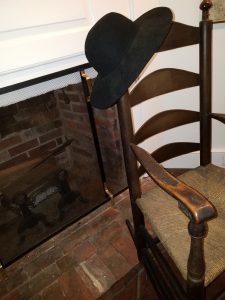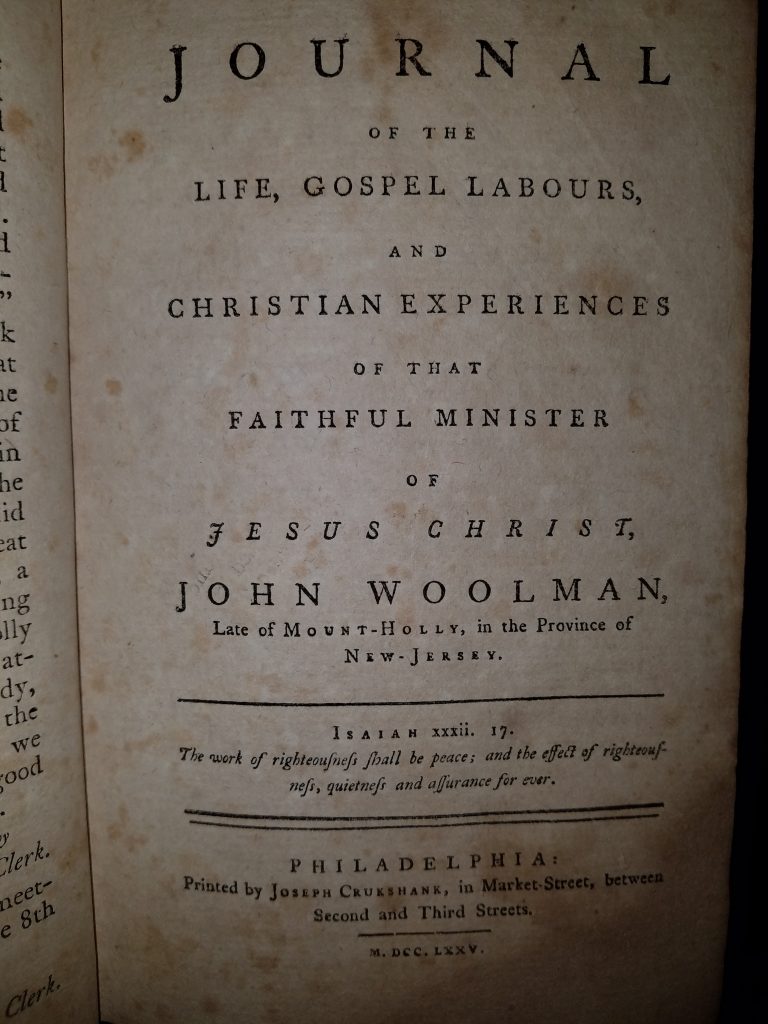John Woolman 1720 - 1772
John Woolman was an 18th Century Quaker, man of peace and disciple of Christ. He is best known for his life long dedication to the abolition of slavery and for his spiritual autobiography The Journal of John Woolman. (see below)
Born in 1720, John became a recorded Quaker minister at age 21, and traveled in the ministry throughout the colonies and eventually to England. For John Woolman the process of letting go of selfish desires and aligning oneself with God’s nature was the key transformational religious experience. The experience of God’s love leads us to love others as we are loved, to exercise compassion and to act to bring about justice and end oppression.
He identified slavery as the major issue of his day and provided an example of non-participation in slavery: he refused to write wills, bills of sale , or any other document that perpetuated slavery. He boycotted all products associated with slave labor including: tobacco, silver, rum, sugar and dye.
John Woolman died in 1772 of smallpox, while traveling in the ministry in York, England. He did not live to see the end of slavery. He was not motivated by results, but by love.


The Journal of John Woolman
John began writing his journal at the age of 36. He writes ” I have often felt a motion of love to leave some hints in writing of my experience of the goodness of God …I was early convinced in my mind that true religion consisted in a inward life, wherein the heart doth love and reverence God the Creator and learn to exercise true justice and goodness, not only toward all men but also toward the brute creatures….”
Woolman’s Journal contains not just “hints” but eloquent descriptions of his experience of God’s love, and his resulting understanding of the interconnectedness of all life.
His Journal was published in 1774, two years after his death, and has remained in print for the past 247 years. The Journal is included in volume one of The Harvard Classics; along with William Penn’s “Fruits of Solitude” and Benjamin Franklin’s “Autobiography”.